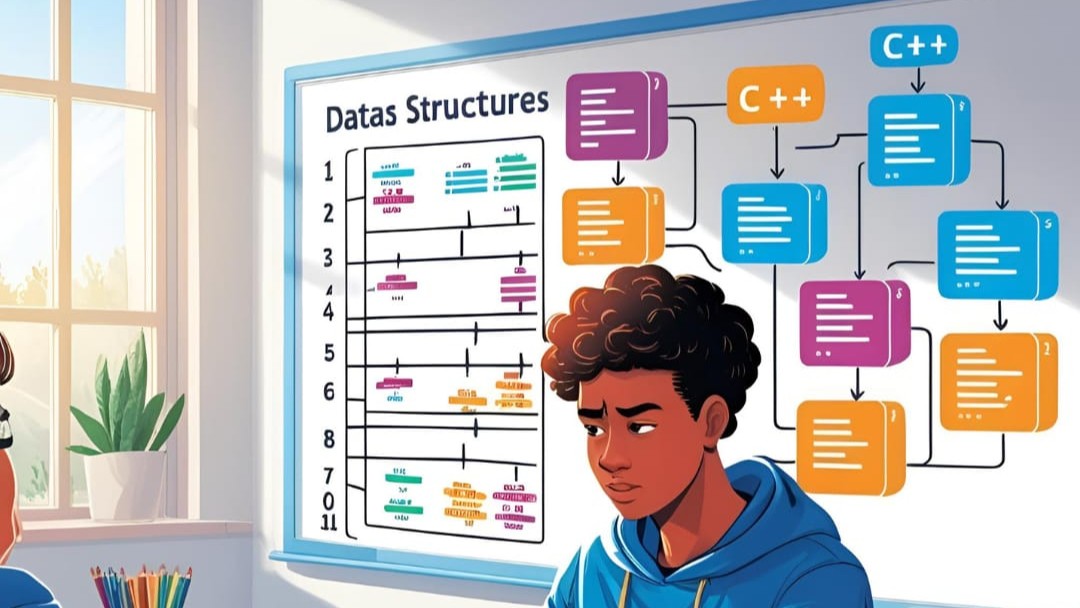
About Course
A comprehensive course on C, C++, and Data Structures will equip you with foundational programming skills, object-oriented concepts, and an understanding of essential data structures for building efficient algorithms and applications. Here’s an outline that builds progressively from basic C programming through advanced C++ and data structures.
Course Content
Introduction to C programming
-
Overview of C: History, features, and uses
-
Basic Syntax and Structure: Writing and compiling a simple C program
-
Data Types and Variables: Integers, floats, characters, and variable declarations
-
Operators: Arithmetic, relational, logical, bitwise, and assignment operators
-
Control Structures: If-else, switch-case, loops (for, while, do-while)
-
Functions: Declaring, defining, and calling functions; recursion basics
-
Arrays and Strings: Single and multidimensional arrays, string manipulation
-
Pointers: Basics of pointers, pointer arithmetic, pointers with arrays and strings
